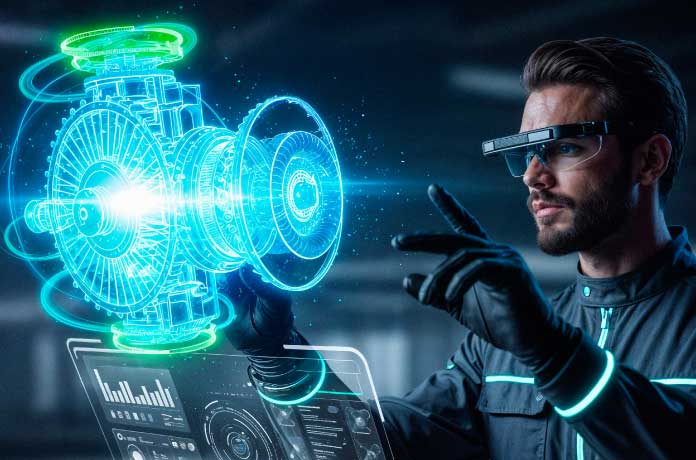AI is sweeping across industries globally, bringing an unprecedented degree of productivity improvement, product innovation, and move-making capacity. Continued advancement in technology is greatly enhancing the implementation of AI solutions in improving traditional business models and opportunities in various industries.
Improving Productivity of Cognition
Employment productivity and organizational efficiency constitute one of the major sectors in an industry where AI has made a considerable impact. This way, the monotonous, tedious, and wasteful handling of tasks be easily delegated to a machine, freeing up personnel to do more productive work. In the industry, for instance, the use of artificial intelligence in robots is taking manufacturing industries by storm since robots assemble, inspect, and package goods efficiently. Besides, it minimizes human interference, resulting in cost-cutting and optimization of cycles, therefore increasing production.
The second of the three pillars is also related to the use of AI as a tool for analyzing big data and using it for predictive analysis to increase the efficiency of processes. In the fields of supply chain and logistics, AI predicts demand, determines the best paths, and controls stocks; therefore, companies will decrease expenses and enhance their performance. Such a degree of understanding helps prevent wastage of resources and generally leads to improved performance.
The Sight of Change in Customer Experience
AI is at the core of disrupting traditional approaches to organizational engagements with consumers. Chatbots and virtual assistants based on artificial intelligence are an indispensable part of customer service today, implemented in retail, banking, and healthcare. These intelligent systems work in real-time, respond to questions, and solve problems at any given time of the day, thus enhancing customer relations and cutting the number of human interferences.
Furthermore, consumers prefer targeted experiences, and with the analytical capabilities displayed by AI, businesses accomplish that. In e-commerce, AI algorithms recommend certain products based on the user’s browsing histories and their buying behavior, which the consumer finds more interactive as well as more personal. Such customization is beneficial for customers and pushes sales up, which makes the usage of AI as an instrument for improving customer relations efficient.
Driving Innovation in Healthcare
AI has thus emerged as a powerful tool for accelerating change across the health industry, mainly in diagnostics, treatment, and research. In handling medical data, machines quickly sift through data, look for patterns, and make decisively correct diagnoses with little margin for error. For example, AI algorithms diagnose X-rays and MRI scans and scan for diseases like cancer earlier and more accurately than human radiologists.
To provide an example in drug discovery, artificial intelligence optimizes the pharmaceutical research process and predicts how potential compounds will act at an advanced stage. That has the effect of cutting the time and cost required to get new drugs to the market tremendously. There are also uses of AI to pinpoint individual-specific treatment options from a patient’s genetic makeup and medical history, increasing the efficiency of treatments.
Redefining Workforce Dynamics
AI is altering occupational positions and skills for working populations, part of industries. When AI performs some specific function, it also ceases to be a plug-and-play technology by generating new positions that entail knowledge of AI functioning, its management, development, and interpretation. Executives and human resource managers say firms are looking for data scientists, machine learning engineers, and AI developers to optimize this technology.
To sum up, AI is successfully improving business performance, changing customers’ experiences and outcomes, promoting technological advancements in such industries as healthcare, and redefining people’s employment experiences. When applied to business, its continued integration brings to light the potential of an intelligent future where companies run smarter and more competitively, therefore AI placing it at the forefront of industrial advancement in the many years to come.




